
Communicating to patients that they need to come to their annual checkup is important for eye doctors to convey to help treat their patients, says Ariana Levin, MD.

Communicating to patients that they need to come to their annual checkup is important for eye doctors to convey to help treat their patients, says Ariana Levin, MD.

Experts discuss the signs and symptoms, treatment methods, and the future of glaucoma as Glaucoma Awareness Month concludes.

Experts raise concerns that CDC childhood immunization changes could reduce vaccine uptake and weaken trust in public health guidance.
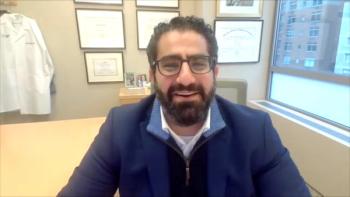
Using artificial intelligence (AI) to specialize treatment for patients with different kinds of cancer can be a boon to clinicians looking to personalize their care.

Experts discuss the evolution of cancer care, emphasizing value-based approaches, precision oncology, and the importance of multidisciplinary collaboration for improved patient outcomes.

New methods of testing tissue and plasma beyond next-generation sequencing (NGS) could be used to deliver the best therapeutic options for patients with cancer.
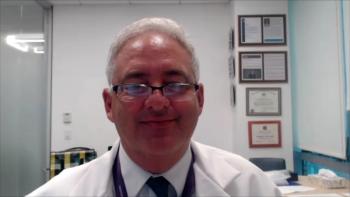
Children and adults should watch where they are walking and avoid any thrown objects when participating in Halloween festivities to protect their eyes.

Using masks that tie up in the back and being aware of environmental factors can help protect eyes during Halloween trick-or-treating.

A session held during the CHEST 2025 Annual Meeting focused on the North American guidelines for treating bronchiectasis.

Aspects of the average Halloween costume could pose risks to the corneal health of the eye if not applied correctly.

The symptoms of dry eye are multifactorial, says Mina Massaro-Giordano, MD, making identifying and treating dry eye important for quality of life.

Zongertinib shows promising results in HER2-mutant NSCLC, offering high response rates and improved quality of life with minimal toxicity.
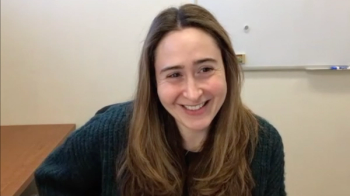
Rebecca Haberman, MD, of NYU Langone Health, highlights precision medicine and potential prevention strategies, two areas of promising psoriatic arthritis research.

Although her recent study acknowledges potential differences between White and non-White patients with psoriatic arthritis (PsA), Rebecca Haberman, MD, NYU Langone Health, emphasizes the need for further research to understand what these differences are and why they occur.

Recognizing psoriasis and psoriatic arthritis (PsA) in non-White patients is the first step toward providing more equitable care for those of all backgrounds with PsA, according to Rebecca Haberman, MD, of NYU Langone Health.

Although psoriatic arthritis may be more prevalent in White patients, Rebecca Haberman, MD, of NYU Langone Health, emphasizes that the disease affects those across diverse racial and ethnic backgrounds.

February 4 is World Cancer Day, and in these interviews with our Strategic Alliance Partner, NYU Langone Health, we learn about the importance of forming strong relationships with the communities you are located in and with whom you work to optimize cancer-related outcomes.

In the second half of our interview with Brita Roy, MD, MPH, MHS, NYU Grossman School of Medicine, she discusses effective engagement of minoritized populations in discussion of medical mistrust.
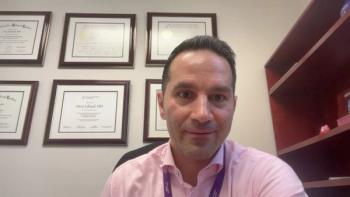
Cochair of our recent Institute for Value-Based Medicine® event hosted with NYU Langone Health, Oscar B. Lahoud, MD, speaks on his hoped-for top health care priorities under the incoming administration.

In this second part of our interview with Kasey Bond, MPH, NYU Langone Health, we discuss the contributions of community health workers to increasing clinical trial access and how technology—artificial intelligence (AI), in particular—can help to facilitate the process.
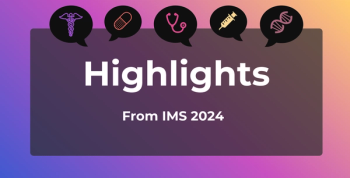
The expert knowledge presented at this year’s International Myeloma Society (IMS) annual meeting focused on minimal residual disease testing and status, defining and treating high-risk disease, CEPHEUS trial findings, and an investigational off-the-shelf chimeric antigen receptor T-cell therapy.
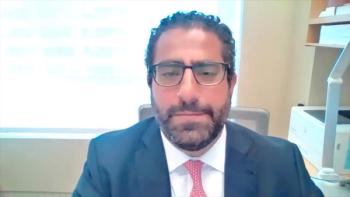
To conclude our interview with Joshua K. Sabari, MD, which focused on the approval of amivantamab plus lazertinib in the first line, he looks ahead to potential uses that could help to overcome treatment resistance in non–small cell lung cancer.

Kasey Bond, MPH, of Perlmutter Cancer Center at NYU Langone Health, speaks to why it’s vital to keep patients at the center of all strategic partnerships between academic institutions and community-based oncology practices.

At our recent Institute for Value-Based Medicine® event hosted with NYU Langone Health, Brita Roy, MD, MPH, MHS, spoke on improving cancer health outcomes through community-clinical partnerships.

In this clip from our interview with Oscar B. Lahoud, MD, cochair of our Institute for Value-Based Medicine® evening hosted with NYU Langone Health, he addressed medical mistrust in underrepresented communities.

Principal treatment-related toxicities that come from amivantamab administration include skin-related reactions, higher risk of venous thrombolism, and infusion-related reactions.

In less than a month, from August 20 to September 19, amivantamab (Ami; Rybrevant, Johnson & Johnson) received 2 approvals from the FDA for use in non–small cell lung cancer (NSCLC).

This newest approval for amivantamab is the second approval in 6 months for the EGFR and MET bispecific antibody.

March 1 saw the FDA grant full approval to amivantamab plus chemotherapy for first-line use in patients who have non–small cell lung cancer (NSCLC) with EGFR exon 20 insertion mutations, converting the May 2021 accelerated approval for this treatment in the second line.

The approval converts the May 2021 accelerated FDA approval for second-line treatment of non–small cell lung cancer (NSCLC) with EGFR exon 20 insertion mutations to a full approval in the first line following results from the phase 3 PAPILLON study.

259 Prospect Plains Rd, Bldg H
Cranbury, NJ 08512
© 2025 MJH Life Sciences®
All rights reserved.
